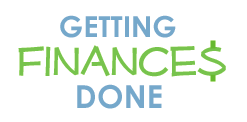Making your cash last until the end of the month
Written by SamIf you’re a regular reader of GFD, you’ll know I’m a big fan of using cash to control your spending. But up to this point I haven’t really gotten into a lot of detail about how I manage my cash. To tell you the truth, there are almost NO tools out there for managing a cash-based budget other than the common envelope. Wallets are great for carrying a single chunk of cash, but they don’t help you organize cash by categories. This leaves a lot of room for creative thinking about how to manage your cash.
Greg over at StackBacks.com has a unique and GTD friendly way of managing cash involving envelopes, index cards, and paper clips. His method is a great way of divvying out your cash so you don’t spend it all at the beginning of the month, leaving you living like a pauper at the end of the month. It’s essentially a sort of cash tickler file (look under “Tools and techniques”).
Please let us know how you manage your cash!
Posted in Budget, Budgeting, Cash, Finances, Money, Personal Finance, Spending, Tools | 5 Comments »


 Subscribe via email
Subscribe via email  Become a fan
Become a fan Subscribe via RSS
Subscribe via RSS Follow me
Follow me
December 19th, 2006 at 9:11 am
I use cash for most (but not all) of my flexible spending. I have a folded up post-it note in my wallet that lists the things I’ve agreed to spend cash on (lunches, beer, craigslist purchases, etc.). I can reference that if I don’t remember, though I hardly ever need to anymore.
I’m paid every month, but I get out cash every other Friday ($200 for two weeks). If I’m running low at the end of week two I’ll penny pinch until it’s time to get more cash.
I’m experiencing that right now, actually. Last week I spent $110 bucks on a craigslisted drafting table and I’ve been very frugal all this week because of it. After Friday, it’ll feel like a “free” table though, b/c my wallet fills back up and there was no “debt” accrued from the purchase.
December 19th, 2006 at 8:33 pm
Before I get paid, I write out a zero-based budget (a la Dave Ramsey). I enter the amounts for the different categories into a financial app (a modified, computer-based envelope system). As I spend money, I note amounts/dates into the categories. This shows me how much money I have left.
When I go to the store, I check my budget to see what I’m getting (or could get), and take that much money with me. This alone seems to cut down a lot on impulse spending.
I was really surprised at how powerful naming your money is (creating a zero-based budget).
December 19th, 2006 at 8:46 pm
Interesting approach. I like the idea of only carrying what you need as long as it’s not too work intensive. I also use “virtual” envelopes for some categories and carry cash for things like groceries, eating out, personal, and clothing (although I don’t always carry my clothing money with me).
December 20th, 2006 at 9:47 am
Carrying a debit card eliminates 95% of my impulse spending. If I’m ‘carrying’ cash it’s simply frittered away on nonsense. So I rarely carry cash just for the sake of it.
I keep track of my variable spending with one debit card and two bank accounts.
The first account takes care of the variable spending which I manage as three virtual accounts – wallet, shopping and petrol. (I use Personal Accountz for this).
The second (and main account) takes care of the critical non-variable stuff. There is no debit card for this account.
Each month, a fixed amount is transferred from the second account to the first account which I manage it accordingl, – bliss.
March 26th, 2009 at 7:13 am
Payday Loan Store
I usually run into a bunch of junk when it comes to this niche, but this is some good useful information I found here. I can’t tell you how much rubbish there is out there, but again I like this site and just wanted to say keep it going